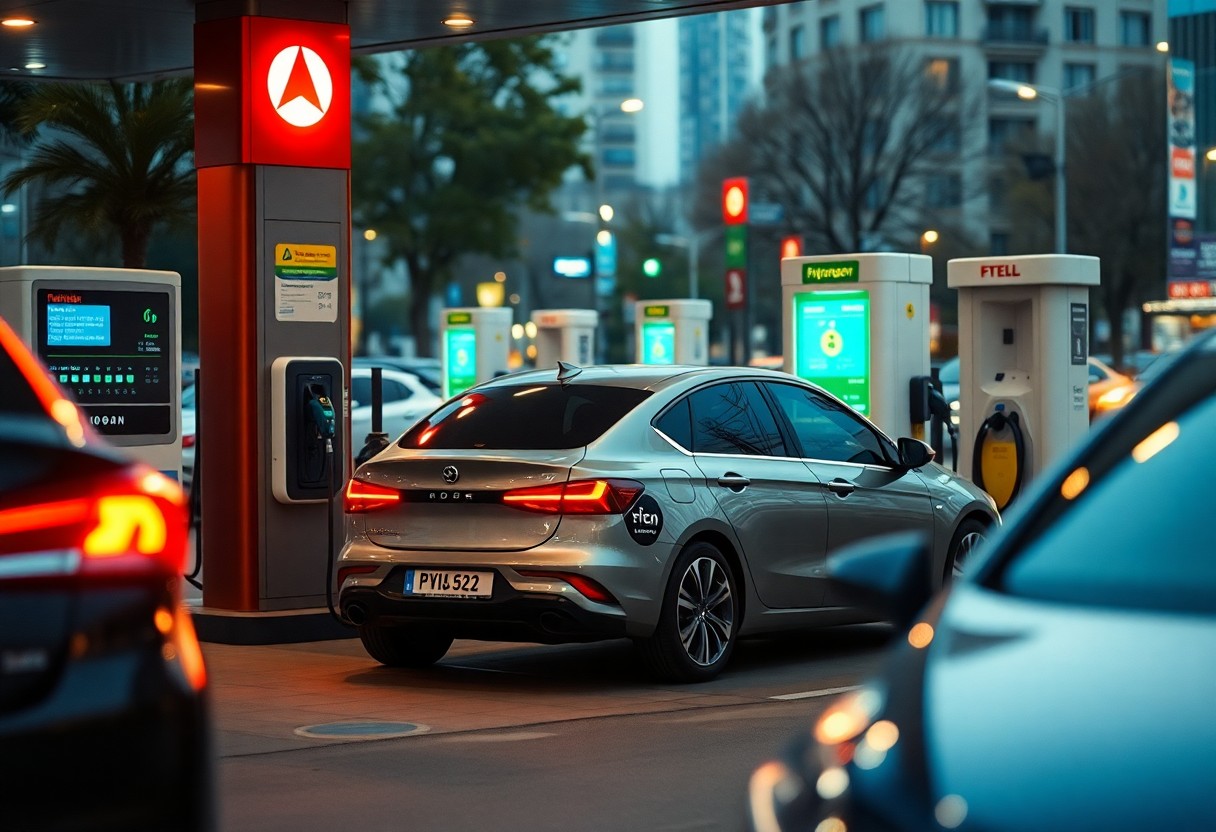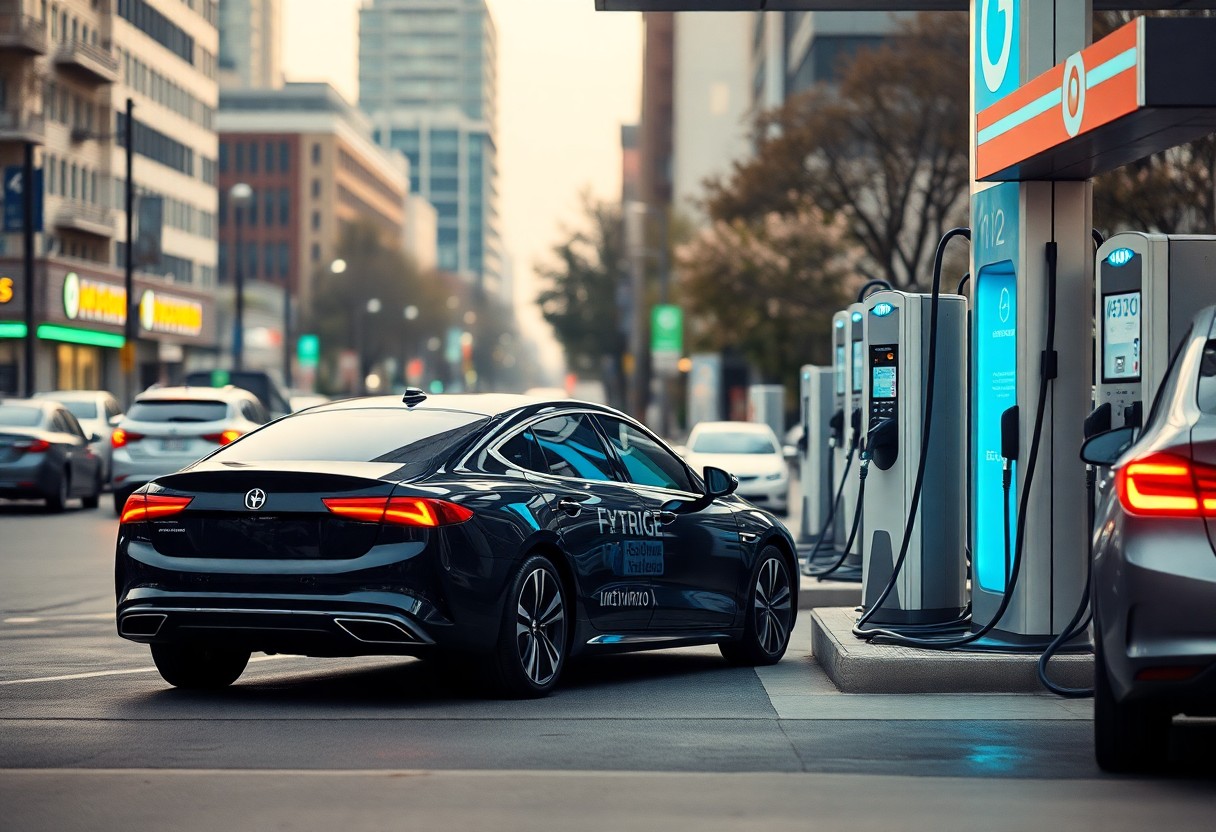Vehicles powered by hydrogen fuel cells are gaining attention as an alternative to traditional gasoline and battery electric vehicles. As you consider your options for eco-friendly transportation, it’s important to understand the advantages and limitations of hydrogen technology. In this post, you will explore the potential of hydrogen cars, their environmental impact, and how they compare to other vehicle types on the market. By the end, you’ll be better equipped to evaluate whether a hydrogen-powered vehicle aligns with your needs and values.

Understanding Hydrogen Fuel Technology
To appreciate the potential of hydrogen cars, it’s crucial to understand the fundamentals of hydrogen fuel technology. Hydrogen fuel cells convert chemical energy from hydrogen into electricity, which powers the vehicle. This process involves an electrochemical reaction, producing only water and heat as byproducts, making it a clean energy source. Additionally, hydrogen can be produced from various resources, from natural gas to renewable sources, enhancing its appeal as a sustainable alternative.
How Hydrogen Cars Work
Before diving deeper, it’s important to note that hydrogen cars utilize fuel cells that convert hydrogen gas into electricity. This electricity drives the electric motor of the vehicle, similar to battery-electric vehicles but without the need for a large battery pack. The fuel cell system also includes a hydrogen storage tank and a power control unit that optimizes energy use for efficient driving.
Types of Hydrogen Fuel Cells
Hydrogen fuel cells come in various types, each suited for different applications. Here are the main types:
- Proton Exchange Membrane (PEM) Fuel Cells
- Phosphoric Acid Fuel Cells (PAFC)
- Molten Carbonate Fuel Cells (MCFC)
- Solid Oxide Fuel Cells (SOFC)
- Alkaline Fuel Cells (AFC)
The selection of the type depends on the intended use and efficiency desired.
| Type of Fuel Cell | Application |
| PEM | Cars and buses |
| PAFC | Stationary power generation |
| MCFC | Large-scale power systems |
| SOFC | Industrial applications |
| AFC | Space applications |
Hydrogen fuel cells operate through an intricate electrochemical process that combines hydrogen and oxygen to produce electricity. This efficient mechanism results in minimal emissions and increased driving range compared to traditional electric vehicles.
- Used widely in various transportation modes
- Highly efficient energy conversion
- Fast refueling times
- Long driving ranges compared to battery electric vehicles
- Minimal environmental impact
The choice of fuel cell technology can greatly influence performance and application suitability.
| Feature | Benefit |
| Efficiency | High energy conversion rates |
| Emissions | Only water vapor produced |
| Fuel Source | Can use various hydrogen sources |
| Duration | Quick refueling capabilities |
| Versatility | Applicable for different vehicle types |
Consequently, each type of hydrogen fuel cell presents unique benefits and specifications, making them adaptable for various uses. Their development has implications for transportation, energy production, and even remote power supply solutions.
- Innovative applications in public transit
- Potential for commercial freight
- Use in emergency power packs
- Benefits in aviation technologies
- Increasing integration in renewable energy systems
The exploration of these types not only illustrates the versatility of hydrogen technology but also its potential to revolutionize the way we think about energy consumption and transportation.

Environmental Impact
One of the main considerations when assessing hydrogen cars is their environmental impact. While hydrogen fuel cell vehicles produce only water vapor during operation, the overall emissions depend on how the hydrogen is produced. You can learn more about Hydrogen as a viable alternative fuel – Fleet Owner, which highlights the potential of this clean technology to minimize ecological footprints.
Emissions and Sustainability
Impact assessments indicate that hydrogen cars contribute significantly less to greenhouse gas emissions than traditional gasoline vehicles, particularly if the hydrogen is sourced sustainably. When utilizing renewable energy for hydrogen production, you can achieve near-zero emissions, promoting a sustainable future for transportation.
Resource Extraction and Production Methods
With the current hydrogen production largely reliant on natural gas reforming, greenhouse gas emissions can be notable. However, alternative methods such as electrolysis using renewable energy sources are gaining traction, significantly lowering the carbon footprint associated with hydrogen fuel.
And while the transition to green hydrogen production is underway, challenges remain in scaling up these methods. You should consider that the sustainability of hydrogen vehicles hinges on advancements in production technologies and the establishment of infrastructure that supports clean hydrogen supply chains, which are critical for widespread adoption and environmental benefits.
Economic Considerations
Some factors play a significant role in assessing the economic viability of hydrogen cars compared to traditional gasoline and electric vehicles. While hydrogen technology may offer environmental benefits, you must consider the broader economic implications, including infrastructure costs and market acceptance. For more insights, check out Why have electric vehicles won out over hydrogen cars (so ….
Cost of Hydrogen Production
Production of hydrogen is primarily dependent on the methods used, which impact its overall cost. Current methods, such as steam methane reforming, have varying affordability and environmental implications. The economic feasibility of hydrogen cars shrinks if production remains costly, as this affects widespread adoption.
Comparison with Gasoline and Electric Vehicles
Production outlays and maintenance costs vary between hydrogen cars and conventional vehicles. This table illustrates some key economic aspects:
| Type | Average Cost per Mile |
|---|---|
| Hydrogen Vehicle | $0.75 |
| Gasoline Vehicle | $0.15 – $0.50 |
| Electric Vehicle | $0.05 – $0.10 |
Understanding the cost implications better helps you decide what fits your budget and lifestyle. The long-term investment in hydrogen vehicles may not yet compete effectively against gasoline and electric alternatives, especially with fluctuating fuel prices:
| Factor | Hydrogen vs. Electric/Gasoline |
|---|---|
| Initial Costs | Higher for hydrogen vehicles |
| Fuel Costs | Higher and less stable |
| Maintenance | Varies, generally higher for hydrogen |
Infrastructure Challenges
Once again, the infrastructure needed to support hydrogen vehicles presents significant hurdles. The current network of hydrogen refueling stations is limited, which can make owning a hydrogen car impractical for many consumers. Without a widespread and reliable refueling infrastructure, your ability to utilize these vehicles will be severely restricted, much like the early days of electric cars before charging stations became ubiquitous.
Current State of Hydrogen Refueling Stations
For many areas, hydrogen refueling stations are sparse and concentrated mainly in a few regions, which restricts your freedom to travel long distances in hydrogen cars. As of now, California leads in the number of operational stations in the U.S., but other states lag behind significantly, making it challenging for you to consider hydrogen as a viable alternative.
Future Development Needs
Along with increasing public awareness and the demand for hydrogen vehicles, expanding the refueling infrastructure is necessary for attracting consumers like you. Investments in more refueling stations and better accessibility will be necessary for hydrogen cars to compete in the automotive market effectively.
Hydrogen infrastructure requires comprehensive planning and financing to ensure station availability mirrors consumer interest. Expanding the network involves not only building more stations but also strategically locating them in urban centers and along major highways. Government support, collaboration with private companies, and innovative funding models can facilitate this development, making hydrogen cars more appealing and convenient for your daily use. By addressing these needs, the future of hydrogen vehicles could become more promising and accessible for everyone.
Market Adoption
Many factors influence the market adoption of hydrogen cars, including advancements in technology, infrastructure development, and government incentives. As you explore this emerging sector, consider how these elements impact the willingness of consumers and manufacturers to transition towards hydrogen as a mainstream fuel source. The lessons learned from early adopters and the experiences gained will shape the future of hydrogen vehicles, illustrating whether they can coexist with traditional gasoline and electric vehicles in your local market.
Current Manufacturers and Models
Market interest in hydrogen vehicles has sparked innovations from various manufacturers, including Toyota, Hyundai, and Honda. These companies have developed models like the Toyota Mirai and Hyundai NEXO, which demonstrate the potential of hydrogen technology. If you’re considering your options, these models exemplify the strides being made in hydrogen propulsion, showcasing the ever-evolving landscape of clean transportation choices.
Consumer Perception and Market Trends
Across the globe, consumer perception surrounding hydrogen vehicles is shifting, influenced by trends in sustainability and renewable energy. While a segment of the population remains skeptical, many are increasingly recognizing the potential benefits of hydrogen as a clean and efficient alternative to traditional vehicles.
Perception plays a significant role in the adoption of hydrogen cars, as public awareness about their environmental benefits grows. Surveys indicate that consumers appreciate the low emissions and long-range capabilities of hydrogen vehicles but are still hesitant due to concerns about refueling infrastructure and vehicle availability. Staying informed about market trends can help you navigate these perceptions and consider the potential of hydrogen vehicles in your own transportation choices.
Comparison with Electric Vehicles
Now, as you consider hydrogen cars alongside electric vehicles (EVs), it is important to evaluate key differences and similarities that affect their practicality. The following table summarizes these factors:
| Factor | Hydrogen Cars | Electric Vehicles |
|---|---|---|
| Refueling Time | 5-10 minutes | 30 minutes to several hours |
| Range | 300-400 miles | 150-370 miles |
| Infrastructure | Limited hydrogen stations | Expanding charging networks |
| Emissions | Water vapor | Depends on electricity source |
Efficiency and Performance
Between hydrogen and electric vehicles, the efficiency largely depends on how the energy is converted and stored. Hydrogen fuel cells can convert energy into motive power efficiently, while EVs typically rely on battery storage. Thus, while both have high performance standards, EVs currently have a slight edge in overall energy efficiency when considering the entire fuel cycle.
Long-term Viability
Between the two technologies, long-term viability is a significant factor to examine. As you investigate the infrastructural and market stability of hydrogen and electric vehicles, you will notice variations in consumer adoption rates, production costs, and government policies influencing their future prevalence.
Hence, evaluating the long-term viability of hydrogen cars involves examining not only the technology itself but also the surrounding ecosystem. Investments in hydrogen infrastructure are crucial for its adoption, while electric vehicles benefit from growing charging networks and battery advancements. Ultimately, your choice may hinge on the development trajectory of both technologies, as well as their capacity to meet evolving energy demands and environmental standards.
1. Hydrogen cars offer zero emissions during operation.
2. Refueling hydrogen vehicles takes less time than charging.
3. Infrastructure for hydrogen fueling is currently limited.
4. Hydrogen production can be environmentally challenging.
5. Vehicle range can be comparable to gasoline cars.
6. Government incentives may support hydrogen vehicle adoption.
Conclusion
To wrap up, hydrogen cars present a promising alternative to traditional gasoline and electric vehicles for you as a consumer. With their quick refueling times and longer ranges, they offer practicality alongside environmental benefits. However, considerations regarding infrastructure development and cost-effectiveness remain. As technology advances and hydrogen becomes more accessible, you may find that hydrogen vehicles could become a valuable option for your future transportation needs.



